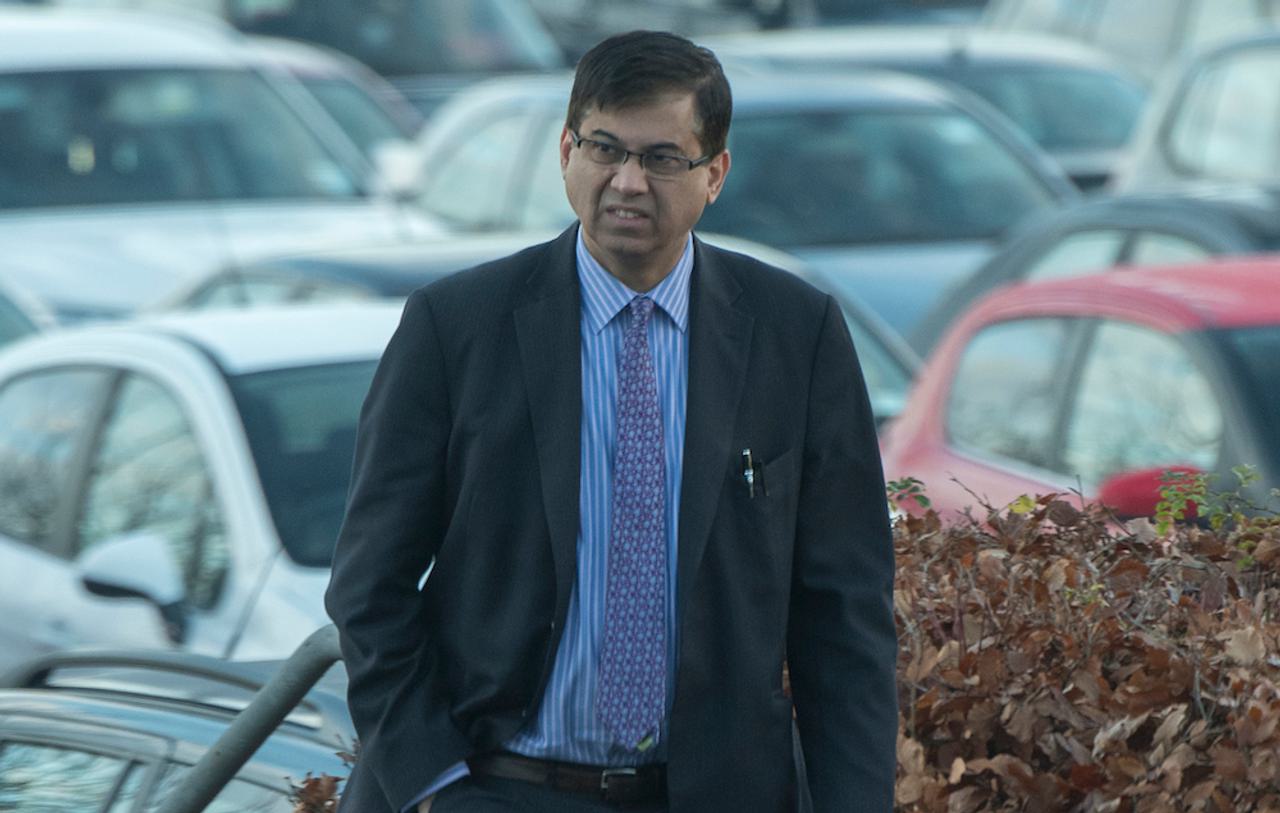
Surgeon accused of profiting from unnecessary NHS operations
A senior surgeon is under investigation by police and the health service over allegations he performed unnecessary surgery on NHS and private patients, in a case that raises serious questions about NHS oversight of its contracts with private health providers.
Concerns have been raised that consultant orthopaedic surgeon Mohammed Suhaib Sait carried out clinically inappropriate treatment that he financially benefitted from, while working at a private hospital in Kent. Staff at Fawkham Manor hospital have told the Bureau they warned managers about Sait over a number of years but claim no significant action was taken until the police were alerted last summer.
Sait was then suspended by Fawkham Manor, which is run by the UK’s largest private hospital chain BMI Healthcare. He is still working as a consultant at the nearby Darent Valley NHS hospital. Last month the General Medical Council said Sait could only see female patients in the presence of a chaperone, following complaints of inappropriate behaviour.
Separately, national healthcare regulator the Care Quality Commission (CQC) visited the hospital in August and November 2016 and is preparing a report which is expected to be highly critical. It has already written to Fawkham Manor expressing “serious concerns” about its operating theatres and clinical leadership, the Bureau has learned.
NHS patients make up almost half the caseload at Fawkham Manor, which carried out 1,848 operations in total in 2015-16. A former NHS commissioner told the Bureau that Sait’s case illustrated a systemic issue – that there is inadequate monitoring of how NHS patients are treated in the independent sector, and audits which would reduce the potential for clinicians to profit from carrying out unnecessary procedures are not taking place.
Sait, who has worked at Fawkham Manor for around 15 years, is also accused of compromising patient safety at times and overcharging for his work – work which the hospital then billed the NHS for.
He is one of more than 6,000 consultants working across the UK for BMI, which last year made operating profits of £28.7 million. BMI told the Bureau that Sait has not been employed at Fawkham Manor Hospital since he was suspended last year. BMI also said it had made improvements to operating theatres and strengthened the hospital management team in response to CQC criticisms.
There is currently no national system in place for monitoring the care provided to NHS patients treated in the private sector. Regional NHS Clinical Commissioning Groups (CCGs) are responsible for handing out and overseeing the contracts, but a senior NHS source told the Bureau the bodies are overstretched and unable to carry out adequate checks.
“NHS commissioners are funding these treatments but don’t know which patients have had what done,” a source close to the Fawkham Manor investigation said. “They get a bill for a list of services and they pay it.” Detailed audits were rarely carried out, he claimed.
Concerns raised in 2014
The central allegation against Sait, which is still being investigated, is that he carried out procedures that were unnecessary or unsuitable to treat his patients’ conditions. Many of these involved keyhole surgery on the knee or other joints – which is known as arthroscopy.
The Bureau has spoken to several members of staff at Fawkham Manor who say they raised concerns over a number of years about the high numbers of minor surgical procedures scheduled by the consultant. They say their warnings were ignored.
A senior consultant general surgeon, Andrew McIrvine, told the Bureau that in 2014, he spoke informally to management at both the NHS Darent Valley Hospital and Fawkham Manor after becoming aware of colleagues’ concerns about Sait.
McIrvine says he told them: “Everybody feels he is doing excessive numbers and possibly inappropriate cases compared with his colleagues. It needs looking into as it could reflect very badly on the hospital management. Unless you do something it will bounce back and bite you.” McIrvine was not aware that any action was taken.
By March 2015 the regional NHS Clinical Commissioning Group, which pays for NHS patients to go to Fawkham Manor, had raised concerns about an “overspend” at the hospital and agreed to carry out a “deep dive” review. But the review was never carried out, the CCG told the Bureau. The review was “considered unnecessary and no further action was taken,” it said.
As time went on staff at Fawkham Manor became increasingly worried by the apparent lack of action regarding their concerns about Sait.
One nurse told the Bureau: “A lady came in for bunion surgery. But she didn’t have bunions. She said Mr Sait had told her it was a preventative thing – if she had the surgery now she wouldn’t get bunions later.”
The nurse says she raised the unorthodox “anti-bunion surgery” with her management but felt she was “batted away”.
The Bureau has seen incident reports referring to occasions in April and May 2015 claiming patients were taken to theatre by Mr Sait without him informing the nurses responsible or ensuring pre-operative assessments were completed.
Pre-operative tests, carried out during admission to hospital, are vital to ensure staff are fully informed of the patient’s medical history including any conditions which may rule out surgery on that day. The documents say one patient was taken into theatre by the surgeon without having been formally admitted to the hospital, meaning no pre-operative checks had been done. One BMI nurse, who asked not to be identified, told the Bureau she raised the alarm and the patient was brought out of the anaesthetic room to allow her to complete the proper admission procedures.
The nurse also wrote in a letter to the hospital’s chief executive: “I observed Mr Sait taking a patient to theatre without notifying the nurses… altogether he did this three times on May 30.” Another patient “had not had her pregnancy test attached to her file,” she said.
She says she continued to raise concerns but she felt to no avail.
Health insurer AXA PPP takes action
Sait was one of Fawkham Manor’s top revenue earners, according to hospital staff. Once he even featured alongside a satisfied customer in a promotional video for BMI. As well as his NHS and private work he carried out operations for health insurers including AXA PPP at Fawkham Manor.
Eventually, someone working within the hospital raised their concerns with AXA PPP and after a preliminary investigation, it contacted the police. In July 2016 BMI, NHS England, Darent Valley hospital, the CQC and local NHS commissioners were all informed of the police involvement.
BMI immediately suspended Sait and later commissioned an external consultancy to carry out a review which is still going on. The CQC also visited Fawkham Manor and is due to release a report of its findings.
In the meantime the GMC dealt with separate complaints by two of Sait’s female patients that he behaved inappropriately towards them. Last December GMC banned Sait from seeing women patients on their own until March 2018, pending a full investigation.
Unnecessary minor procedures
After Sait was suspended from Fawkham Manor his caseload was referred to other consultant orthopaedic surgeons. Some patients scheduled for surgery by Sait had their operations cancelled after review by these consultants as they did not consider them necessary.
Reports prepared by these consultant surgeons have been leaked to the Bureau. One of the surgeons reviewed the cases of 33 patients assessed by Sait and felt that half of the procedures had been unnecessary or required further review. Another questioned the treatment given in all but one of 15 cases reviewed.
Sait wrote in his clinic records about one patient that she was “keen for surgery”. The reviewing surgeon noted “patient definitely not keen on surgery as she is high risk for anaesthetic” and said there was “inaccurate representation of [X-rays]” in Sait’s clinic letter. The treatment recommended by Sait – manipulation of the joint under anaesthetic with an injection – would have provided no benefits and could have potentially made condition worse, the reviewer added.
Another NHS patient was reported to have felt “pressured into having surgery” despite having a condition the reviewing surgeon felt did not fit the criteria for surgery. “Again, clinic letter at odds with patient’s recollection of events,” they added.
Sait had carried out an arthroscopy on one patient’s knee when the reviewing surgeon said it was “obvious” from her X-ray that she had arthritis in her hip, and no apparent problems in her knee.
The Bureau contacted Sait on multiple occasions with a full list of the allegations made against him, but he declined to comment.
Complexity of contracts makes monitoring ‘almost impossible’
The number of surgical procedures carried out on NHS patients in the private sector has risen steeply in recent years, from 350,000 in 2012 to 530,000 last year. Department of Health (DoH) accounts show the NHS paid the private sector £8.7bn for services last year, 7.6% of the DoH’s total budget.
Almost half of the patients treated by BMI – whose boss Jill Watts got £1.4 million in pay and benefits in the last financial year – are NHS referrals.
The allegations against Sait raise general questions about the safety of patients treated within the private sector, where governance and transparency procedures differ from those within the NHS. Many private hospitals do not pay their doctors a salary, but give them a fee for each patient they see and treat, with more complex surgery earning the doctor a higher fee. Private hospitals contracted by the NHS are also paid according to how many patients they treat.
There can therefore be a financial incentive for doctors and hospitals to over-treat. This does not exist in the NHS, where clinicians receive an annual salary or are paid per shift if they are locums.
Knee arthroscopies on older patients are a classic example of this, a common procedure despite multiple controlled trials indicating it provides little benefit. The procedure was the subject of controversy in 2011 when BUPA accused surgeons of performing arthroscopies unnecessarily after discovering its insured members were twice as likely as NHS patients to have the operation.
Editorials in the British Medical Journal in 2015 and 2016 said knee arthroscopies were highly questionable and argued financial incentives were the reason so many were being carried out.
BMI has previously been accused of compromising patient safety.
Last week it was reported that an NHS-funded patient of a different BMI hospital in London was suing the chain after developing pulmonary embolism – a life-threatening condition – following spinal surgery. It is alleged the hospital altered medical records to suggest the patient was given preventative drugs after the operation in 2013.
In 2015, an NHS patient at a BMI hospital in Lancaster died from pulmonary embolism when the hospital missed “multiple opportunities” to avoid the condition occurring, according to the coroner who carried out the inquest, including failing to give her preventative treatment despite her being at high risk of developing the condition.
A report published by think tank Centre for Health and Public Interest (CHPI) in March 2015, which looked into NHS outsourcing of community and secondary care, said a lack of accountability in profit-driven healthcare was putting NHS patients at risk. “If profits can be increased (or losses reduced) by cutting the quality of services to patients, or by cutting corners, there is an incentive to do it,” it said. “And this may be enhanced by pressure from managers who have corporate profit targets to meet.”
The CHPI also warned the complexity of the NHS contracts with the private sector combined with a lack of transparency meant there was no effective oversight. Poor information sharing and contract enforcement “makes it almost impossible for a commissioner of services to know whether a provider is delivering according to the terms of the contract, or is cutting corners or reducing quality in order to gain extra revenue,” it said.
A spokesperson for the Dartford, Gravesham and Swanley Clinical Commissioning Group and NHS England South East told the Bureau: “The NHS has a clear and robust process for monitoring and reporting fraud, which is independently reviewed to ensure that both the NHS, and independent hospital providers alike, maintain high quality healthcare for patients, and use public money appropriately.”
The CCG and NHS were aware of the allegations against Sait and independent investigations were underway, the spokesperson said.
A CQC spokesperson said its inspection report on Fawkham Manor Hospital was “currently undergoing factual accuracy checks, as part of our usual publication process”, and it would be published as soon as that process concluded.
Dr Howard Freeman, Clinical Director at the NHS Partners Network – which represents private hospitals and other independent providers offering services to the health service – said : “All independent providers are accredited by the Care Quality Commission to ensure they provide the same quality and safety standards as the NHS. More than 70 per cent of acute independent hospitals currently have ‘good’ or ‘outstanding’ CQC ratings. Any clinical professional who knowingly carries out unnecessary activity faces disciplinary action from the GMC, being struck off or even criminal charges.”
Have you got concerns about care you received as an NHS patient in the private sector? Contact [email protected]
Photograph of Mohammed Suhaib Sait via Daily Mail





